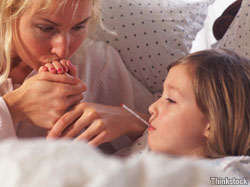(ARA) – When it comes to germs and disease prevention, Dr. Ann Stewart-Akers says it’s just a matter of time. That is, it’s a matter of taking time for simple precautions that a lot of people let slide because they’re in such a hurry.
A microbiologist and former researcher in the University of Pittsburgh’s School of Medicine, Stewart-Akers is an assistant professor in the College of Health Professions at South University’s Columbia, S.C., campus. She sees the start of cold and flu season as an opportunity to get people started with the practice of hygiene habits that are important all year round.
“Germs are everywhere,” says Stewart-Akers. “Everything is contaminated.” With nursing students going through health care training, she makes the point with a simple laboratory test for bacteria on paper money.
“We find bugs like ‘staph,’ ‘strep,’ and E. coli. And these germs can cause illnesses of varying severity,” she says. “Initially, some students are kind of frightened. I point out that, of course, some germs make some people very sick, but just a few simple steps can prevent a lot of problems. Certainly nurses can’t be afraid to touch their patients.”
As Stewart-Akers sees it, we get too busy and distracted to practice basic preventive measures that people have known about for years. She believes in hand washing done the old-fashioned way. “Slow down, lather up with soap and warm water, and wash your hands for as long as it takes to sing ‘Happy Birthday’ twice,” she advises.
And what if you skip the soap? That is not always a bad idea, according to Stewart-Akers. “Rubbing your hands together under running water, and rubbing each surface of your fingers and hands, is what removes the germs,” she explains. “The simpler the soap, the less you expect the soap to do for you and the more responsibility you take for cleanliness.”
Eating lunch at your desk might also be hazardous to your health, according to Stewart-Akers. “We work through lunch, eating at our desks where we have stacks of papers and mail that have passed through many hands, and backpacks or satchels that have been who-knows-where. Maybe we wash our hands before we eat – maybe – but how often do we clean our office desktops just like we are supposed to do the kitchen countertop?” Her advice is take time to clean your work surface and phone regularly with a sanitizing wipe or antibacterial cleaner, and wash your hands before and after you eat.
Another of Stewart-Akers’s concerns is that many people won’t take time off from work when they’re sick, or when their children are sick, instead hiring a babysitter to stay with them. “This puts another person at risk for infection,” she says.
Stewart-Akers says she hopes that instead of worrying about germs, people will simply make time for routine cleanliness. “People in health professions can’t afford to skip steps to reduce the risk of infection. Cleanliness has to be a habit for them – and it’s not any different for all the rest of us. Now is a good time to start taking more time for this, but cleanliness is never out of season.”

